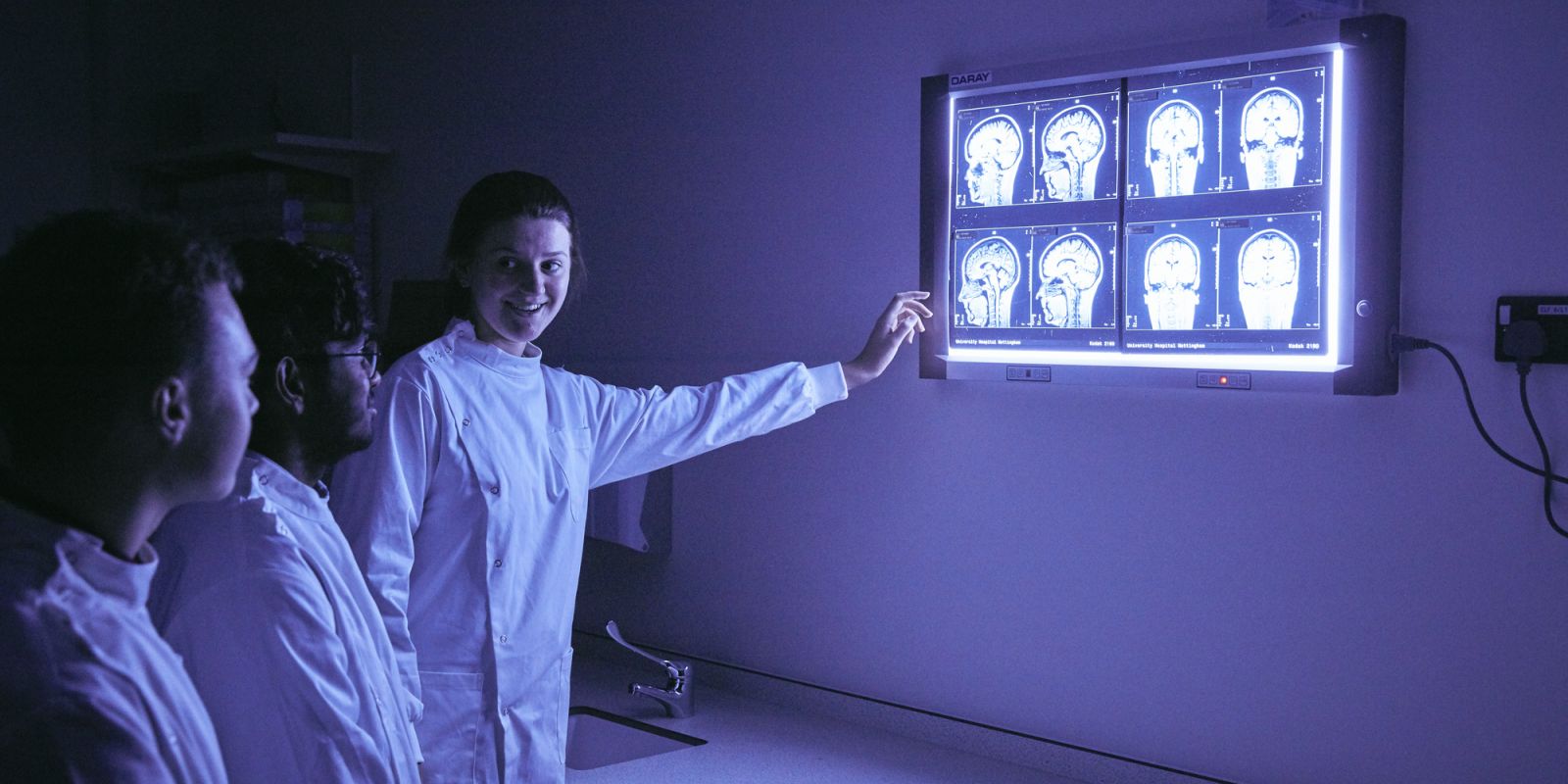Alongside health service provision, the health and care sector is creating great career opportunities and developing the right environment for important research, innovation and technology.
The University of Lincoln, in partnership with the Greater Lincolnshire LEP, and Lincolnshire County Council have collaborated to create the university's net-zero new medical school which opened to students in September 2020. This high-quality integrated clinical facility is now driving skills development across the fields of medicine and allied health subjects, providing the platform to grow the scale and diversity of existing provision from professional development to post-graduate qualification.
Lincolnshire is also the location for the National Centre for Rural Health and Care, as well as home to the Lincoln International Institute for Rural Health with ambitions to become the pre-eminent rural health institution worldwide.
The opportunities for the private sector and sector supply chains are immense. Our growing and ageing population, along with geographically dispersed towns and villages, are driving opportunities for economic growth in Greater Lincolnshire’s health and care sector, which currently employs 62,000 people and is worth £2bn per annum to our economy. Alongside the vast public sector functions involved, the sector represents almost 4,500 businesses. It is also busy developing and embedding innovation across the NHS through the new Schools of Life Sciences and Pharmacy at the Lincoln Science and Innovation Park, deploying assistive technology and ensuring our housing stock can meet the ‘whole life’ needs of residents.
But while health and care is a significant source of employment in Greater Lincolnshire, and offers great opportunity, the reverse is also true. As a sector it is relatively unproductive: since 2014 Greater Lincolnshire’s health and care sector has failed to keep pace with productivity gains made elsewhere in the UK, and now it lags behind nationally. Greater Lincolnshire is typical of many rural settings in that 80% of rural residents live within 4km of a GP surgery, compared with 98% of the urban population, and only 55% of rural households compared to 97% of urban households are within 8km of a hospital. The ratio of NHS staff in the ten most rural areas compared to England is 1 : 1.45 and there are exceptionally acute shortages in doctors, midwives, and consultants. Rural areas have a proportionately higher share of older people with more significant costs associated with health care, and more than 40% of spending in the NHS is devoted to people over 65.4 with the proportion of Greater Lincolnshire’s population over 65 predicted to grow by 38% by 2041. Coastal settings are particularly challenged in terms of a skewed ageing demographic profile and a lack of clinical staff, linked in part to the relative isolation of the area and a higher than average level of poor health behaviours. These challenges must be met while the health and care workforce already faces 13,000 vacancies over coming years.
Meanwhile the impact and human stories arising from Covid-19 means that the adult social care debate is rightly moving faster up the political agenda. It is increasingly unaffordable across England and represents a disproportionately high proportion of local government budgets. For example, from 2013 to 2018 the proportion of Lincolnshire councils' gross budget spent on adult social care rose from 29 to 42% (and this predates the added pressures of the emergency Covid-19 response). Our dispersed population makes it relatively more expensive to deliver adult social care because of the travel times involved in accessing those needing care, and we face a significant challenge of providing suitable housing and support for independent living to support healthy outcomes for the ageing population.
However, Greater Lincolnshire is well positioned to become an international centre for innovation for rural health and care solutions, particularly through the Lincoln-based National Centre for Rural Health and Care. A further priority now is to develop a pharmaceuticals network based around the Lincoln Science and Innovation Park. Greater Lincolnshire is also developing a pilot ‘Communities of the Future’ to meet the needs of an ageing population which will explore improved physical and digital connectivity to local services and transformation of health and care services. We will also address workforce challenges around skills and retention through promoting alternative career pathways and enhancing the capability of the voluntary and community sector. Greater Lincolnshire is a powerful collaborator across many sectors, with the Greater Lincolnshire LEP at the heart of bringing together the key partnerships and organisation to ensure a collaborative, pubic, private, academic response aligned with innovation and capital investment in health care facilities and provision to bring essential and wider social and economic benefits to the area.
The Greater Lincolnshire LEP Health and Care Enterprise Board is made up of a formidable team of health and care professionals and leaders, and is chaired by Dean Fathers, Independent Health Care Lead and Diversity Champion. The Health and Care Enterprise Board takes a lead on strategy development for health and care sectors in Greater Lincolnshire, and its aim is to shape and influence the future Heath and Care Enterprise in the LEP area. This includes reviewing and framework progression of the current and long-term outcomes and opportunities to the health and care system approach, and bringing forward the transformation of new solutions which support people to live well for longer in rural areas. Find out more here.


